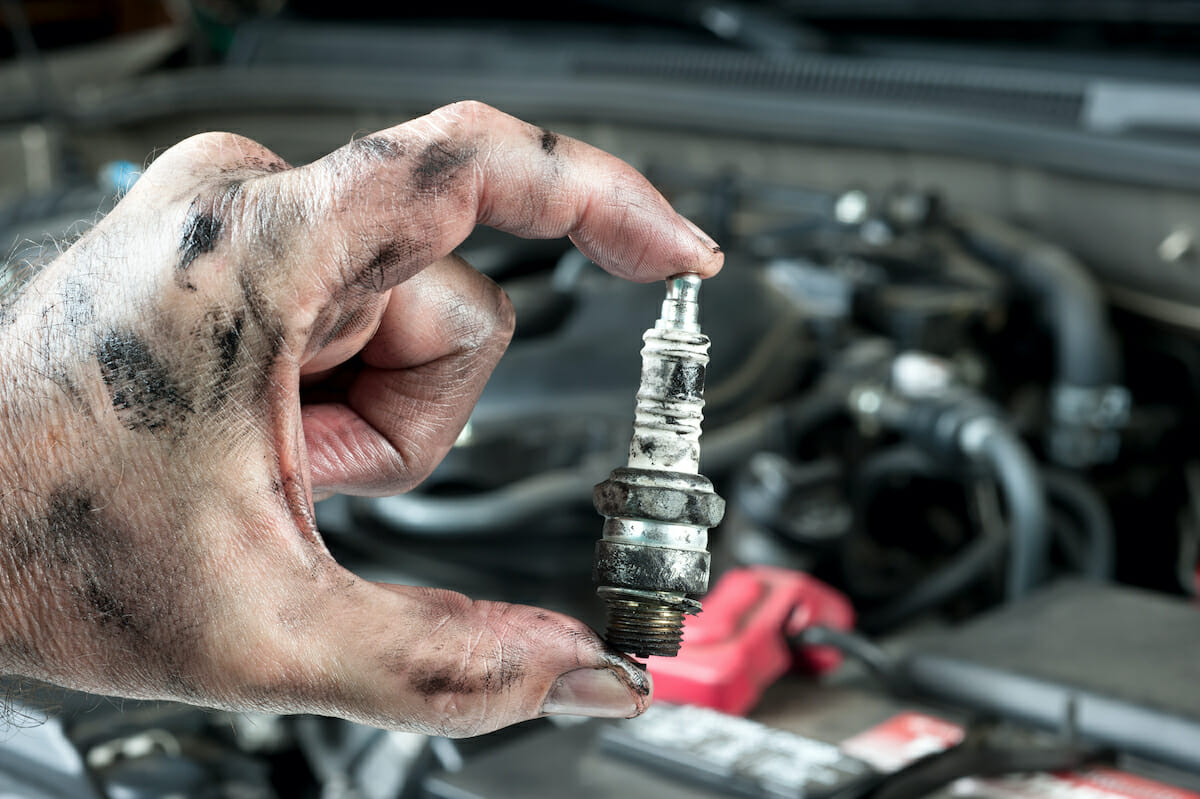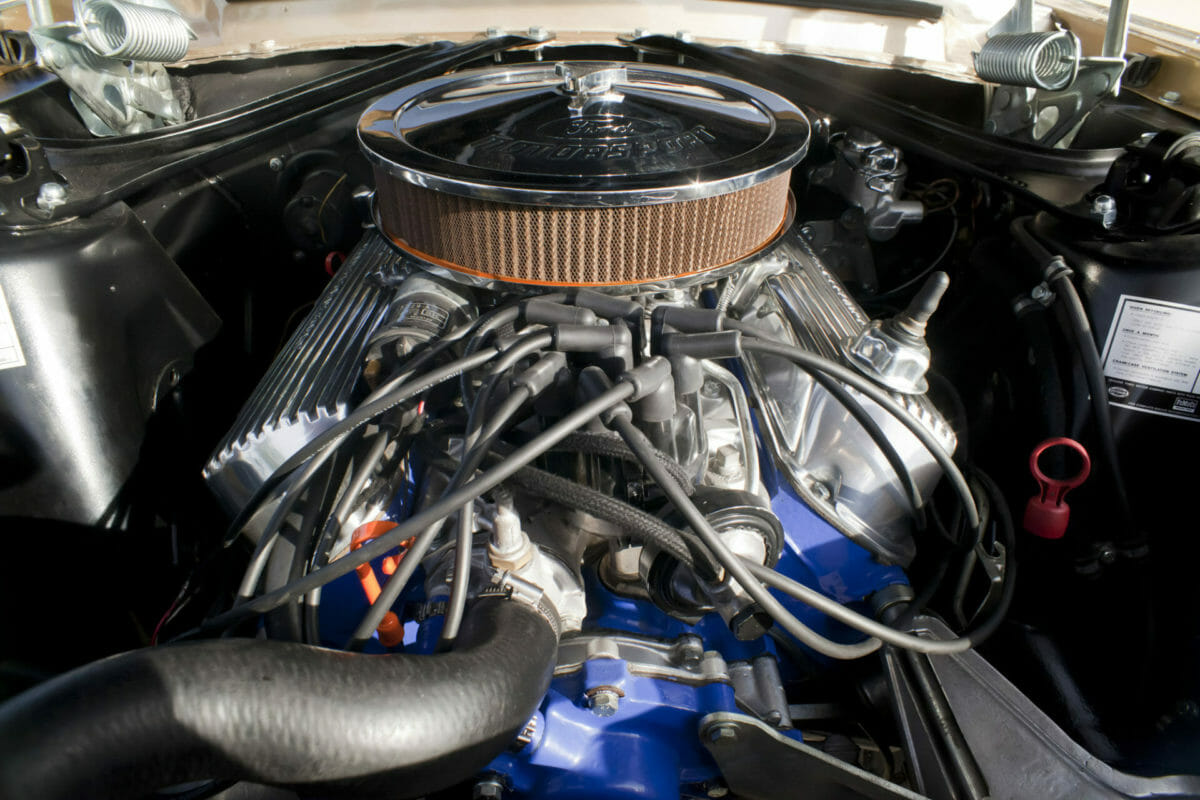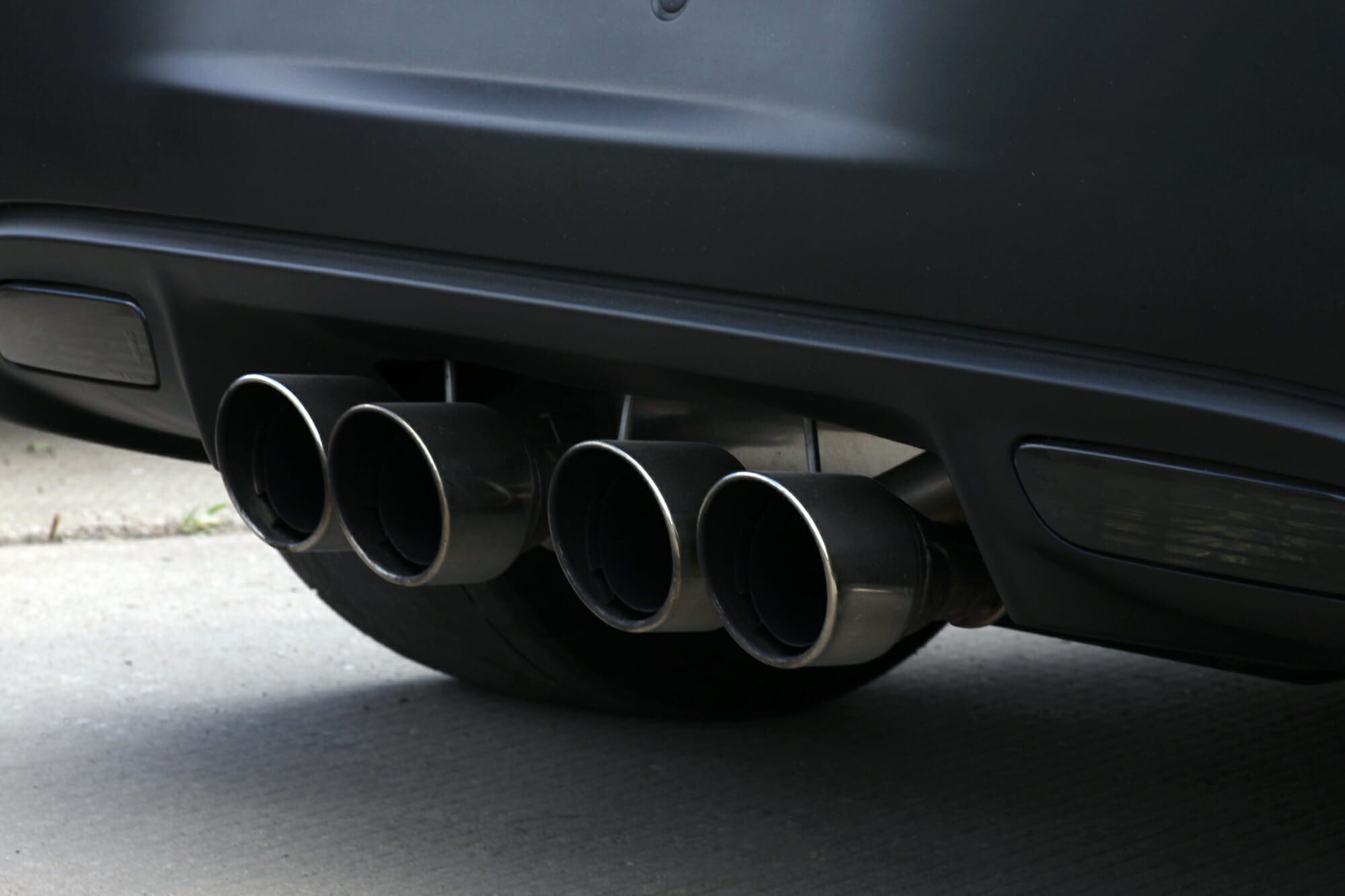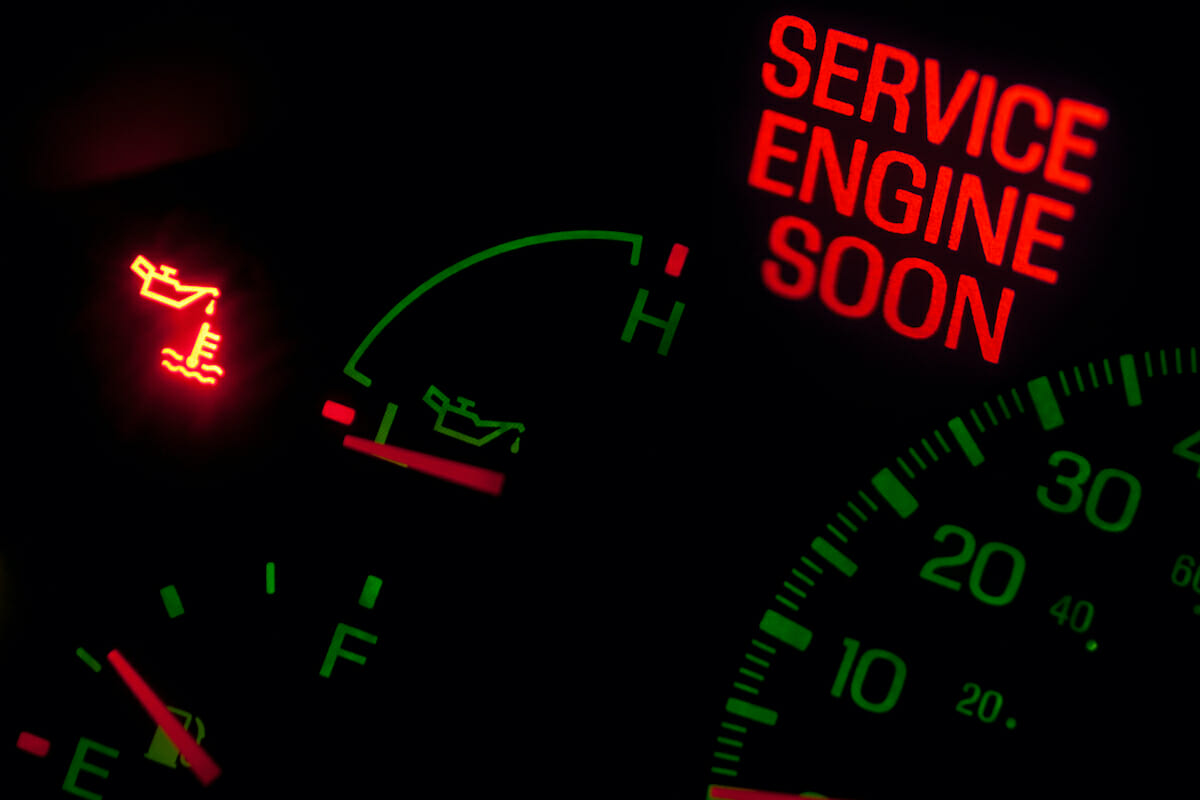Spark plugs should be serviced every 30,000 miles. There are several clear indicators that you may need to replace them.

Spark plugs are a critical component of any gasoline engine. A spark plug consists of a powered central electrode and a grounded side electrode and is wrapped in ceramic insulation. One spark plug threads into a hole in each cylinder of most engines. The plug creates a spark to ignite the fuel-air mixture and drive the combustion cycle.
Spark plugs have a difficult job: with every combustion cycle, they must channel a 20,000-volt charge. What is more, they are subject to the constant pressure and heat of the combustion chamber. Over time, spark plugs wear out.
According to legendary auto parts retailer Champion, sometimes leaking engine oil builds up on the plug’s electrodes. Other times trace elements—such as carbon—from gasoline and air build up on the plug’s electrodes. The plug’s electrodes also break down from heat or use. Finally, the precise gap between the electrodes changes over time. All these issues will affect how well your engine runs.
Your spark plugs should be examined and replaced regularly. Check your owner’s manual or service manual for your automaker’s suggested maintenance interval. For example, it is suggested you change Chevy Colorado spark plugs every five years or 150,000 miles.
If you cannot find the recommended interval, The Drive suggests having your spark plugs serviced every 30,000 miles. You should never wait for your spark plugs to fail before servicing them: Failing spark plugs can damage other engine components.
When spark plugs malfunction, so does your engine. Worn or fouled plugs may prevent a cylinder from firing consistently. Or they may spark at the wrong time in the combustion cycle. There are several ways these problems manifest.
Here are nine possible symptoms of spark plug failure:

1. Engine Struggles to Start
If your engine cranks for a long time before finally starting, something is wrong with it. Because spark plugs are critical for igniting the fuel-air mixture in each cylinder and starting your engine, worn-out spark plugs can cause a motor to struggle to start. This happens when fouled-up or malfunctioning plugs fail to ignite the fuel in your engine. Autoblog points out that ignition trouble can be caused by many problems and is best diagnosed by a professional.

2. Engine Will Not Start at All
If worn-out spark plugs struggle to start, and the problem is left unaddressed, the spark plugs will eventually fail completely. Once this happens, the engine will be unable to start at all.
Attempting to start the vehicle will only activate the electric starter motor: the engine will crank (turn over) and try to start, but it will never fire. Spark plugs are one of several components to examine when trying to fix a car that cranks but doesn’t start.

3. Rough Idle
When your engine is idling poorly, you may see inconsistent rpms, even with your foot off the gas pedal. You may also feel excessive vibration or hear excessive noise when your engine is idled down (running slowly).
In extreme cases, your motor may even stall. Like the above symptoms, a rough idle may be because fouled-up or worn spark plugs cannot ignite the fuel-air mixture consistently. And like the above issues, a rough idle may also have many other causes.

4. Knocking or Pinging Noises
United Tire & Service writes that if your spark plugs are detonating improperly—and thus not igniting all the fuel in the cylinder—the remaining fuel-air mixture may catch fire and detonate later in the engine’s combustion cycle. The result will be a distinct knocking sound, especially while you are accelerating.
There are other motor issues—besides worn spark plugs—that can impact your engine timing. Several of these issues can cause serious damage to your vehicle and should be addressed by a mechanic immediately. Examining your spark plugs is a good first step when trying to tell if your car’s engine is bad.

5. Backfiring
When an engine backfires, it makes a short but loud bang you can hear through the exhaust pipe. Sometimes a backfire is as loud as a cough; other times, a backfire is as loud as a gunshot.
According to Christian Brothers Automotive, one possible cause of a backfire is a spark plug failing to ignite the fuel-air mixture at the proper time, causing unburned fuel to be ejected into the exhaust system where it detonates. Backfiring is often worse while decelerating.

6. Excessive Engine Noise
If your engine becomes much louder than normal, your vehicle needs a tune-up. The team at Your Mechanic suspects that an exhaust system problem causes most engine noise issues. But they write that if a vehicle becomes much louder at idle, worn spark plugs could be to blame. This would likely be some combination of the rough idle and backfiring symptoms listed above.

7. Reduced Performance
When a bad spark plug detonates the fuel-air mixture too late, the corresponding cylinder produces little or no power. This problem is called misfiring. When one or more cylinders are misfiring, you may notice a drastic drop in your engine’s power and thus your vehicle’s performance—according to United Tire & Service.

8. Reduced Fuel Economy
Perhaps your engine is misfiring, but you do not immediately notice the decrease in power. You may notice the problem next time you are at the pump: One or more misfiring cylinders force the rest of the motor to struggle and can lead to a dramatic decline in fuel economy.

9. Check Engine Light
The mechanics at Dave’s Automotive point out that many of the symptoms of worn-out spark plugs—such as misfiring—can cause your check engine light to warn you that something is wrong. Whenever you see a check engine light, it is good to have a professional look at your vehicle.
Determining Serious Spark Plug Issues
The nine symptoms listed above are all serious problems, indicating your vehicle needs immediate attention. Though worn spark plugs can cause each of these issues, numerous other malfunctions could be causing them as well.
Proper Mechanic shows how examining your spark plugs is a quick and easy job you can complete on your own. For many vehicles, such as the 2013 Ford Explorer, replacing spark plugs is a job you can complete with basic hand tools.
As a bonus, the condition of each plug will tell you a lot about any other issues your engine may be facing, arming you with helpful knowledge if you need to contact a professional mechanic.
If you choose to replace your spark plugs, remember that some spark plugs are better than others.
Photos: Deposit Photos